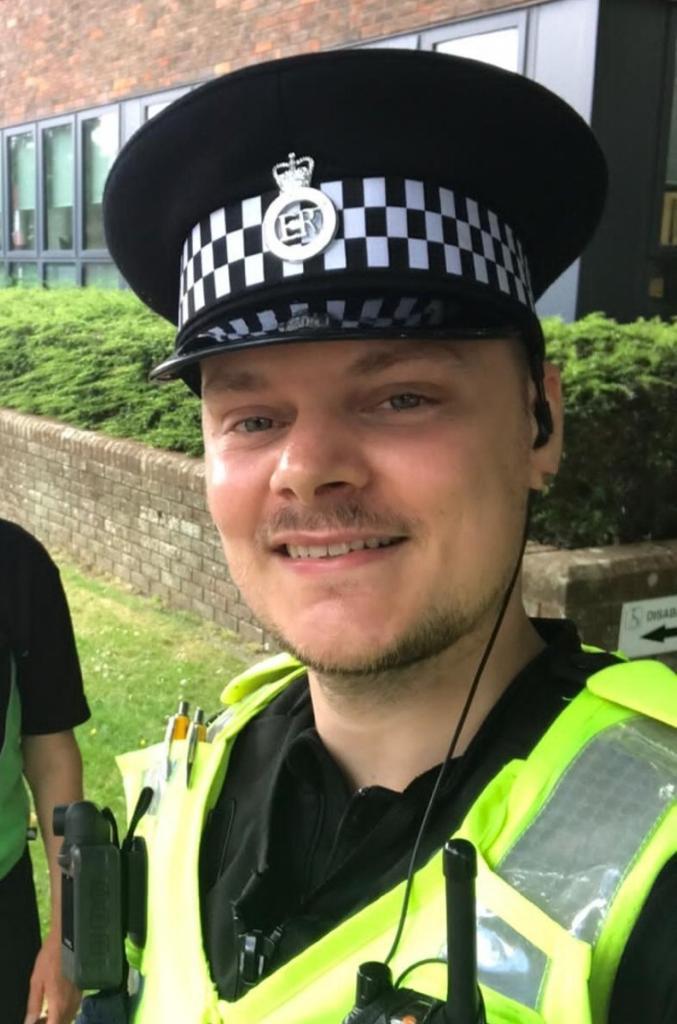Police Now officers tackling crime and anti-social behaviour across Bedfordshire
Wednesday 23 June 2021
Nearly 3,000 fewer anti-social behaviour incidents in areas with Police Now officers – equivalent to a fall of nearly half
Substantial decrease in shoplifting and theft
Police Now attracts and develops the most diverse group of officers in policing
Police Now officers are playing a vital role in tackling crime and anti-social behaviour in Bedfordshire.
Communities where Police Now officers have been posted for the last 22-months across the force area have seen 2,651 fewer incidents of anti-social behaviour compared to the same time period from October 2016 – equivalent to a 49 per cent drop.
Officers on Police Now’s National Graduate Leadership Programme have been working alongside their colleagues within their local neighbourhood teams.
As well as the drop in anti-social behaviour, communities have also seen 626 fewer incidents of shoplifting – a fall of nearly a third (31 per cent). There were 147 fewer incidents of other theft (such as theft by an employee, blackmail and making off without payment) – a fall of 12 per cent – and 130 fewer incidents of theft from a person, equivalent to a fall of more than a quarter (26 per cent).
PC Steven Beer of Bedfordshire Police works in the Community Cohesion team to build confidence in the police and grow relationships with different members of the community. In PC Beer’s first few weeks within the team, the St.Vincent volcano erupted in the Caribbean – many Luton residents have family that live there, so he worked alongside his colleagues and community leaders to help organise and deliver care packages to send to those in need. These packages included non-perishable food like rice and beans, medicine, feminine hygiene products and clothing and shoes for men, women and children. By investing time in supporting his communities, PC Beer built strong relationships between Bedfordshire Police and the community, which in turn can lead to better intelligence gathering and subsequent reductions in crime due to increased trust and engagement.
PC Beer said: “Our role is to monitor and reduce tensions within the community. A more diverse and balanced force has the capability to make initial contact with the community and, with those connections, provide advice and support for individuals. A force that reflects the community it polices will find they are given more intelligence, which will result in a safer community.”
Police Now’s mission is to transform communities by recruiting, developing and inspiring diverse leaders in policing.
Officers on Police Now’s programmes develop skills in leadership and problem-solving. They share a commitment to public service, fighting crime and inspiring social change alongside their colleagues.
Police Now has recruited a total of 1,830 officers across 33 forces in the UK, including Bedfordshire Police, who have partnered with Police Now for the past four years with 27 police constables having joined the force via this route.
Police Now consistently recruits more officers who are women or from black, Asian and minority ethnic backgrounds compared to any other entry route into policing. Police Now recruitment data shows that, nationally, 17% of those joining Police Now’s National Graduate Leadership Programme in 2020 identified as coming from a Black, Asian and Minority Ethnic background and more than half (54 per cent) identified as women.
“We’re incredibly proud of the positive impact our participants continue to have within their local communities, and their commitment to driving positive change with their colleagues so that everyone in our society, including the most vulnerable, have a chance to thrive”.
David Spencer
Co-founder of Police Now and former Detective Chief Inspector
Impact in the
community

Q&A with Police Constable Steven Beer
Neighbourhood Police Officer
National Graduate Leadership Programme Participant
Bedfordshire Police
When did you enroll with Police Now?
I enrolled with Police Now in September 2019 and had my interview in November of the same year. It was on a real spur of the moment thing, as I was in a well-paying job at the time, but was feeling dissatisfied as I had always wanted to do something more with my life. In particular, I had always wanted to do a job that allowed me to help people. When I saw the Police Now scheme advertised I felt it was exactly what I was looking for and jumped at the chance to apply. Prior to this I had worked in the Force Control Room as a Call Handler in 2015/2016 and I had studied Criminology and Forensic Science at the University of Portsmouth in 2008 to 2011.
Police Now is trying to increase diversity in the force. Do you think having a force that better reflects the community it serves helps to bring down crimes like anti-social behaviour and why?
I would agree that having a diverse force will would help to bring down crimes like anti-social behaviour. The problem with a non-diverse team of officers in a community is that it only allows for a limited scope of backgrounds, which may not reflect a community which has a higher number of people from a particular background for example.
In regards to ongoing issues like Anti-Social Behaviour; a more diverse and balanced force has the capability to make initial contact with the community and, with those connections, provide advice and support for individuals. A force that reflects the community it polices will find they are given more intelligence, which will result in a safer community.
What was the most important lesson you took from your training with Police Now that has enabled you to deal with crime / support your community?
The key lesson that I learned when dealing with crime and supporting my community is not to be afraid to engage with the community. It’s amazing how many things, even during a pandemic, are occurring in the world that still require support and that the police can offer assistance with. During my first few weeks in Community Cohesion, the St. Vincent volcano erupted in the Caribbean and, due to residents of Luton having family that lived there, care packages were organised. These contained non-perishable food like rice and beans, feminine hygiene products, chocolates, clothes (for men, women and children) including shoes, and medicine. Myself and another officer helped with the care packages, spending the day with community leaders and members of the community building connections. It was led by the Chair for St Vincent’s community group in Luton (Joan Bailey) and supported by Luton Borough Council.
Have you implemented any new initiatives to reduce ASB or burglary crimes, or build confidence in policing in your community?
I’ve been working in the Community Cohesion Team since end of March beginning of April. Our role is to monitor and reduce tensions within the community, as well as provide contacts and information regarding the community in the event of a serious offence. During this time, I’ve done a lot with the community in order to build confidence in the police, particularly during incidents such as the “Kill the Bill” protest where we have engaged with community activists in Luton in order to ensure the correct number of officers attended, but also the “Free Palestine” protests where I have attended the protests as I’ve grown relationships with members of the Muslim Community and my presence allows for a friendly first point of contact. Also, during the peak of the Israel/Palestine conflict this year, I worked on a report which summarised the tensions between Jewish and Muslim residents in Bedfordshire since the conflict first began.
What has been the moment that you have been most proud of professionally in the last 22 months?
As I’ve only worked as a Police Officer since July 2020, I would have to say my proudest professional moment came very recently. As a new Cohesion officer, I have been hired in order to build connections within Central Bedfordshire which is an area that has gone largely untouched with contacts for the last several years, since Luton and Bedford tend to take up a lot of officer’s time. In my short time working for the team I have begun the process of building those contacts and I am slowly working my way out from Leighton Buzzard and Dunstable into other areas such as Flitwick and Ampthill. As Central Beds is a massive area, this will require a lot of work, but the progression that has been made so far is far more than we’ve ever had before and I’m proud that it’s through my efforts that we are gradually getting these contacts, which will be beneficial in the future if serious offences occur or if tensions begin to grow.
Data references
Using data taken from Police Recorded Crime Statistics, the independently peer-reviewed figures compare the 22-month period from October 2016 to July 2018 before any Police Now officers had joined their local communities to the period when they joined from October 2018 to July 2020.
The data presented here is subject to limitations with Police Recorded Crime Statistics and methodology. More details on this are available at the bottom of the following Police Now webpage.




